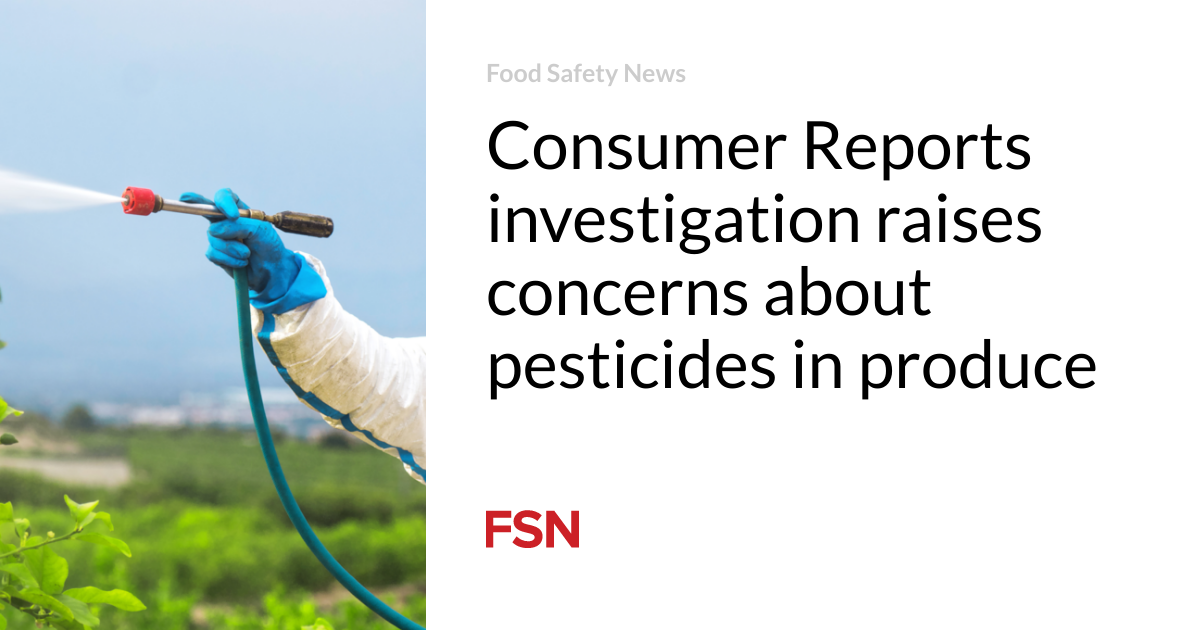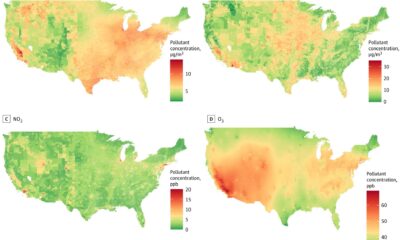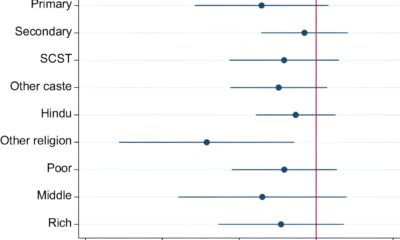Food
Research from Consumer Reports raises concerns about pesticides in products

Consumer Reports (CR) has made findings about pesticide contamination in everyday fruits and vegetables in a recently released study. The report, which represents CR’s most comprehensive analysis to date, examines the pervasive presence of harmful pesticides in our food supply, raising critical questions about food safety and regulatory oversight.
Although the exact extent of the health risks from chronic exposure to pesticides remains uncertain, data from several studies indicate a link between pesticides and increased risks of cancer, diabetes, cardiovascular disease, Parkinson’s disease and other health problems. Particularly vulnerable populations, such as agricultural workers and their families, face increased risks, with exposure during pregnancy and childhood potentially leading to developmental and respiratory problems. Concerns also arise about the possible cumulative effects of long-term exposure, especially for individuals with chronic health conditions or who live in areas with high toxin exposure.
Based on seven years of data from the Department of Agriculture, CR 59’s food safety experts examined common fruits and vegetables. Pesticides posed significant risks in 20 percent of the items examined. The offenders included household items such as peppers, blueberries, green beans, potatoes and strawberries.
A particularly alarming revelation involved green beans, which showed residues of a pesticide that had been banned from use on the vegetable in the US for more than a decade. This issue highlights potential gaps in regulatory enforcement and oversight.
“While fruits and vegetables are an integral part of a balanced diet, our findings underscore the urgent need for increased vigilance and regulatory action,” said James E. Rogers, Ph.D, who oversees food safety initiatives at CR. “It is clear that current measures are inadequate to protect public health from the risks of pesticide contamination.”
CR’s analysis provides actionable insights for consumers looking to reduce pesticide exposure. By using CR’s ratings, individuals can identify safer alternatives and, when possible, prioritize organic products. The report emphasizes the importance of informed decision-making, especially for vulnerable populations such as children and pregnant women, who may be more affected by pesticide residues.
CR advocates regulatory interventions to better address pesticide risks. To ensure the integrity of our food supply, better monitoring of imported products is recommended, especially from regions with lax pesticide regulations. CR also calls for increased support for organic farming practices, citing their potential to reduce dependence on harmful pesticides and promote sustainable farming systems.
CR hopes the report will be a wake-up call for policymakers, industry stakeholders and consumers to prioritize food safety and environmental stewardship.
Click here for the full report.
(To sign up for a free subscription to Food Safety News, click here.)











